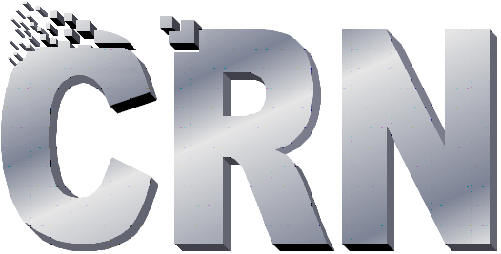|



New!
Nanotech Scenario Series









Join the
conversation at
CRNtalk!
| |
Asking the Right Questions
"The molecular age may let us connect our
actions more directly with consequences arising from them. As manufacturing
becomes compressed in time and space, many of its consequences, beneficial or
otherwise, are going to be right in front of us."
—
Douglas Mulhall
We believe an important function of CRN is to find and ask the
right questions. Until we have uncovered the crucial ethical issues, societal
implications and potential risks, we can't expect to design effective solutions.
For that purpose, we are indebted to many esteemed colleagues
who share our concern and have assisted by directing us to the areas of greatest
import. Among others, we must acknowledge Kevin Ausman (Center for Biological and Environmental Nanotechnology),
Davis Baird (University of South Carolina), Eric Drexler and Christine Peterson
(Foresight Institute),
Jerry Glenn (American Council for the United Nations
University), Hans Glimell (Goteberg University,
Sweden), Lisa Hopper (World Care), Alfred Nordmann (Technische Universitat Darmstadt, Germany),
and Dr. Sinclair Wang (Tainano).
A special thank-you is offered to Douglas Mulhall, author of
Our Molecular Future, for articulating some of the vital questions to be
addressed. Here are some of the momentous topics he expects we may confront in the
coming years:

 | What happens to the monetary system when everyone is
able to satisfy his own basic material needs at very low cost?
|
 | How would we use cash when digital manufacturing makes
it impossible to differentiate a counterfeit bill or coin from the real
thing?
|
 | What happens to fiscal policy when digital information,
moving at light speed, is the major commodity? |
 | How fast will monetary cycles move compared to, say,
the ten- or twenty-year cycles of the late twentieth century, when
products and patents go out of date in a matter of months instead of
years? |
|
 | What happens when we don't have to worry about trade or
social services for our basic needs, because most of what we need is provided
locally with digital manufacturing, and the biggest trade is in information?
|
 | How do we control the excesses of the ultrarich, the
overabundance of the molecular assembler economy, and the challenge to
intellectual property laws created by intelligent, inventive machines?
|
 | What happens if half of all jobs are made redundant every
decade? |
 | What happens to the War on Drugs when there's no import,
export, or transport of contraband because drugs can be manufactured in a
desktop machine using pirated software downloaded from the Internet? |
 | What happens to democratic controls when individuals can
get as rich as small governments in a year or so? |
 | What's the relevance of insurance if many things are
replaceable at very low capital cost, but liabilities from software are
potentially unlimited? |
 | How should organized labor react when molecular assemblers
and intelligent robots eliminate most manufacturing jobs? |
 | What is the nature of work going to be? |
 | What happens to land prices when an individual can build a
tropical farm under a bubble in North Dakota, and get there from New York in
an hour? |
 | What happens when everyone can go everywhere, whenever they
want, and work from wherever they want?
— excerpted from
Our Molecular Future, copyright 2002 by Douglas Mulhall
|
Thanks, Doug. It looks like we've got our work cut out for us!
To these questions we will add a few more of our own:
 | Who will own
the technology for molecular manufacturing? |
 | Will it be heavily
restricted, or widely available? |
 | What will it do to the
gap between rich and poor? |
 | How can dangerous
weapons be controlled, and perilous arms races be prevented? |
 | What happens to privacy
when powerful surveillance devices are smaller than a mosquito, just as mobile,
and so cheap that they are virtually everywhere?
|
The purpose of CRN is to investigate the
societal implications, long-range risks, and effective use of nanotechnology,
and to educate those who will influence its use, or be affected by it. In order
to provide well-grounded and complete information, clear explanation, and
workable proposals, CRN studies, clarifies, and researches all the issues
involved—political, economic, military, humanitarian, and technological—then
presents the results for both technical and popular audiences.
Results of Our
Ongoing Research
|
